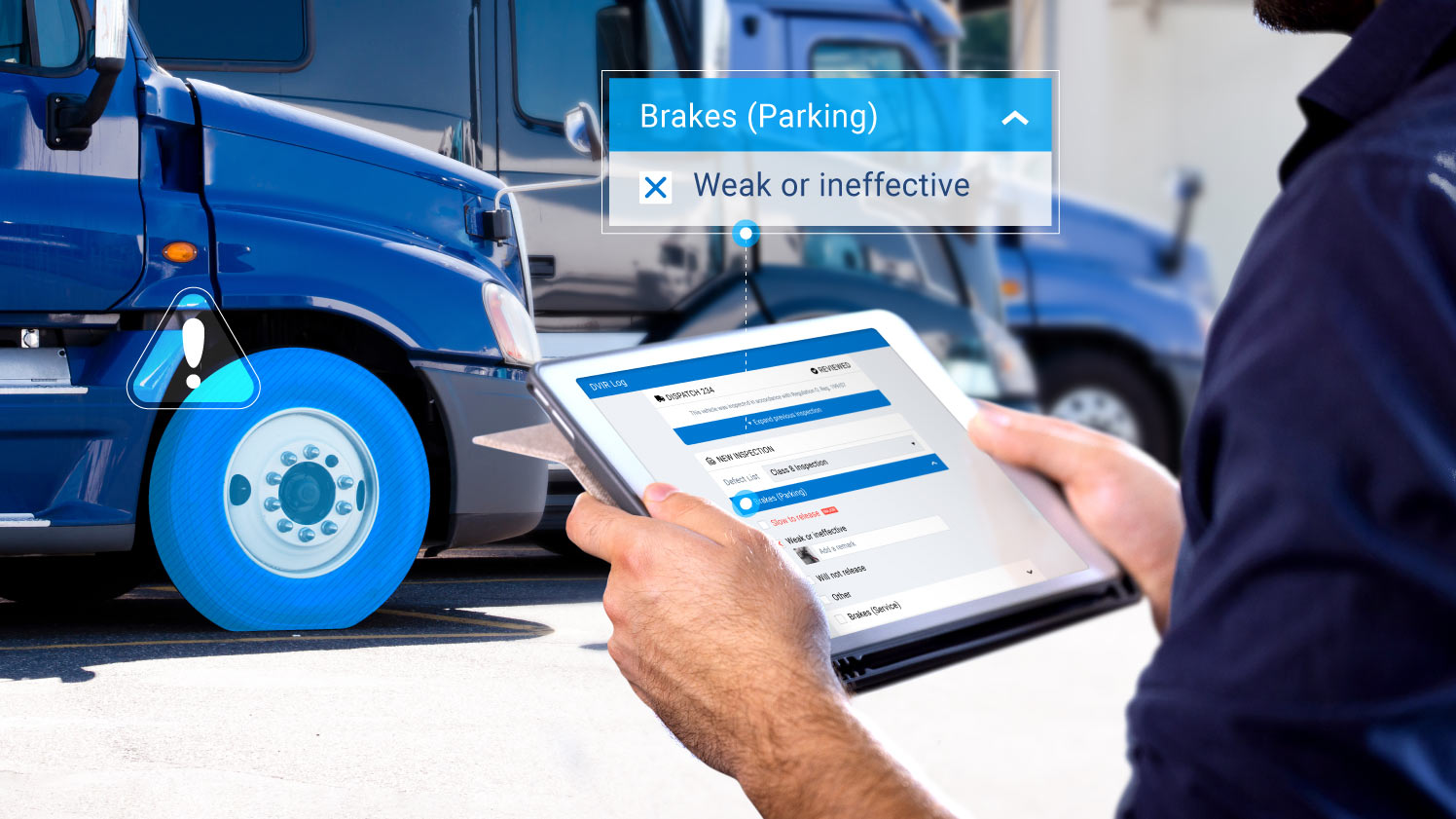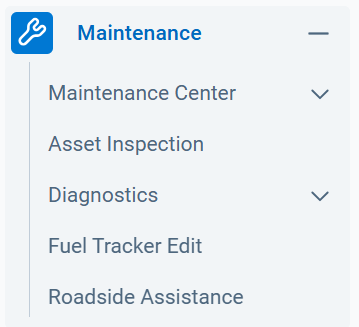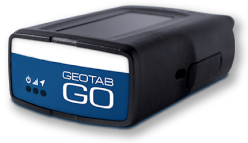Geotab’s DVIR
Driver Vehicle Inspection Reports
What is DVIR: Ensuring Safety and Compliance with Geotab
A Driver Vehicle Inspection Report (DVIR) is an essential document that verifies a driver has carried out a thorough inspection of a commercial motor vehicle. Both pre-trip and post-trip inspections are required, with any mechanical issues carefully noted. These inspections are crucial for maintaining fleet compliance and promoting safer roads for everyone.
Why is DVIR needed?
Strengthen fleet safety and compliance.
DVIRs (Driver Vehicle Inspection Reports) are a critical part of U.S. transportation regulations, designed to reduce collisions, injuries, and fatalities involving commercial vehicles. By using Electronic DVIRs, fleets can streamline inspection processes and ensure safety checks are completed before and after every trip—helping keep both drivers and the public safe.

Penalties and Risks
Impact of Failing to Complete Inspections
Failure to complete a required inspection may result in penalties. The Motor Carrier Safety Assistance Program (MCSAP) Inspectors are tasked with conducting roadside inspections on commercial vehicles and their drivers. Noncompliance with DVIR regulations can lead to fines issued at the discretion of the Department of Transportation (DOT) officers. If a vehicle is deemed unsafe during an inspection, it will be immediately taken out of service. This unexpected downtime can lead to significant revenue loss for the carrier.
What is included?
What’s Checked with Geotab DVIR
Vehicle inspections are guided by FMCSA regulations and include a detailed check of essential components like brakes, tires, lights, mirrors, and safety equipment to ensure every vehicle is safe and road-ready:
- Brakes and air system
- Steering mechanism
- Lights and reflectors
- Tires, wheels, and rims
- Windshield wipers
- Rear view mirrors
Coupling equipment and fifth wheels - Safety and emergency equipment


Inspection Insights
How Geotab Handles Vehicle Inspection
When drivers complete a DVIR in Geotab Drive, any reported deficiencies are instantly communicated to fleet managers and office staff through real-time alerts and automated reports. Serious issues are flagged as high-priority and may restrict the vehicle from being driven until it’s cleared by maintenance. This ensures safety, compliance, and quick resolution of problems. To learn more about how vehicle issues are tracked, escalated, and resolved.
Geotab Custom DVIR
Improving Inspections with Geotab Drive
The Geotab Drive app is an easy-to-use tool for drivers to complete their Driver Vehicle Inspection Reports (DVIR), and these lists can be customized to create a tailored DVIR for different vehicle types. While DVIRs are often required for heavy-duty vehicles, many clients use them for general vehicle condition tracking for maintenance purposes. As part of the latest updates to MyGeotab, you might notice that the DVIR section has been renamed to Asset Inspection, although the process remains unchanged. Through the Geotab platform, you can create custom defect lists for DVIRs (now labeled as Asset Inspection) that apply to all vehicles or trailers within your fleet. For detailed instructions, you can watch the provided videos showing how to log in, perform the inspection, and review the completed DVIRs (Asset Inspections) in MyGeotab. If you need further assistance, feel free to reach out to us. Learn More About Custom DVIRs with Geotab Drive.

Drive App DVIR
A Smarter Way to Manage Compliance
This all-in-one driver platform simplifies essential tasks like Electronic Logging Device (ELD) compliance, DVIRs, driver identification, and communication—all within one powerful app. Fleet managers can monitor compliance in real time through MyGeotab, while drivers benefit from an easy-to-use DVIR feature that keeps daily operations smooth and efficient. Discover How Geotab Drive Enhances DVIR Compliance.
Daily Vehicle Inspection Reports (DVIRs) are a crucial part of fleet safety and compliance. Drivers are required to complete inspections at the start and end of their shifts—commonly referred to as pre-trip and post-trip inspections. Geotab Drive streamlines this process with an easy-to-use electronic system, allowing drivers to log and certify inspections efficiently, helping ensure vehicles are road-ready and compliant with regulatory standards.
Commonly asked questions
What is DVIR in trucking?
In the trucking industry, a DVIR (Driver Vehicle Inspection Report) is an essential daily record that drivers complete to ensure their vehicles, such as trucks or buses, are in safe working condition. This report serves as a formal notification to the company about any safety concerns or missing equipment on the vehicle. Drivers are required to conduct both pre-trip and post-trip inspections, documenting any mechanical issues or defects they find. These regular inspections play a vital role in enhancing road safety and ensuring compliance with fleet regulations.
Why is DVIR needed? Is DVIR mandatory? Is DVIR required by law?
Ensuring DVIR compliance is crucial for enhancing road safety. The primary goal of requiring a DVIR is to make sure drivers identify any potential faults or defects in their vehicle and equipment before they pose a risk on the road. This process also helps schedule necessary repairs in a timely manner, allowing the vehicle to operate at peak efficiency. DVIRs are mandated by the Federal Motor Carrier Safety Regulations and are strictly enforced by U.S. authorities. This regulation aims to reduce accidents, injuries, and fatalities involving commercial vehicles. The use of Electronic DVIRs further improves safety by ensuring inspections are conducted before and after every trip.
Who needs a DVIR? Should I be concerned with DVIR compliance?
DVIR compliance is required for drivers operating commercial vehicles, such as trucks and buses, that exceed 10,000 pounds in weight, carry more than 9 passengers, or transport hazardous materials. Drivers of passenger vehicles like vans and buses must complete a DVIR at the end of each day’s trip, indicating whether any defects are present. On the other hand, truck drivers and operators of property-carrying vehicles are only obligated to complete a DVIR if there is a safety-related defect to report.
Who is exempt from DVIR?
Companies operating a single vehicle that exceeds 10,000 pounds in weight, carries more than 9 passengers, or transports hazardous materials may be exempt from DVIR requirements.
What must be included in a DVIR? What are the requirements for electronic DVIRs?
A DVIR must cover several key components: a detailed vehicle inspection, documentation of any defects, necessary corrective actions, and proper signatures. Required details include the date of the inspection, vehicle identification information such as the fleet or license plate number, the driver’s signature, and—if applicable—the signature of a mechanic or supervisor who completed or evaluated needed repairs. If another driver uses the vehicle afterward, their signature is also needed to confirm the vehicle is safe to operate or that repairs were not necessary.
Electronic DVIRs (eDVIRs) often offer the added flexibility of customizing inspection checklists based on specific vehicle types or operational needs. While DVIR regulations clearly outline what must be included in the report, they do not dictate how the information should be presented, allowing electronic systems to streamline and tailor the process.
What is an electronic DVIR? What are the requirements for an eDVIR?
Traditionally, DVIRs were completed on paper, but now more drivers are adopting electronic versions, known as eDVIRs. An eDVIR is a digital or paperless version of the driver vehicle inspection report, serving the same purpose as its paper counterpart. Just like the traditional DVIR, an eDVIR must be filled out daily by drivers of commercial vehicles after each trip. These reports typically include essential details such as the vehicle’s make, model, year, VIN (Vehicle Identification Number), and license plate number.
Are there penalties for not having a DVIR?
Yes, there are penalties for failing to complete a DVIR. During roadside inspections, Motor Carrier Safety Assistance Program (MCSAP) inspectors evaluate both commercial vehicles and drivers for DVIR compliance. If a driver or company is found in violation of DVIR regulations, they may face fines imposed by the Department of Transportation (DOT). Additionally, any vehicle deemed unsafe during a DOT inspection will be taken out of service, leading to potential revenue loss for the carrier.
How long should DVIRs be kept?
According to the Federal Motor Carrier Safety Administration (FMCSA), carriers are required to retain the original copy of each DVIR for at least three months from the date the report was completed. While this three-month retention period ensures DVIR compliance, there are additional benefits to keeping records for a longer duration. Electronic DVIRs offer the advantage of long-term storage without the need to manage large volumes of paper records.
What are the benefits of an electronic DVIR?
Electronic DVIRs, or paperless Driver Vehicle Inspection Reports, simplify and accelerate the submission of pre-trip and post-trip inspections. These reports are filed digitally, enabling fleet managers to receive real-time updates on inspections. This streamlined process ensures FMCSA compliance and helps reduce vehicle downtime by promptly notifying managers of any defects. Additionally, it makes it easier to identify vehicles that may have missed or bypassed inspections, minimizing the risk of DVIR compliance violations while enhancing overall fleet safety.
What DVIR solution does Geotab offer? Can Geotab help with DVIR compliance?
Yes, Geotab can assist with DVIR compliance! Geotab Drive is an all-in-one platform designed to streamline Electronic Logging Device (ELD) compliance, DVIR, driver identification, messaging, and more. With the DVIR app feature, fleet managers can easily monitor compliance in real time, ensuring that drivers’ work is efficiently managed and DVIR requirements are met seamlessly.
Want to Learn More?
Have questions or need more information about DVIR compliance or our solutions? Our team is here to help! Reach out to us today to learn how we can assist with your DVIR needs and ensure your fleet stays compliant and safe. Contact us now to get started!

Check Pricing
All of our GPS tracking solutions are customized for your business and tailored to your budget...

Return on Investment
At GPS Tracking Canada, we understand that every company benefits from GPS Tracking in different ways...

Request a Demo
Get a live one-on-one demonstration from GPS Tracking Canada. See for yourself how customized...
For more information, or to schedule a demo or an installation,
call us toll free at 1.877.477.0987
